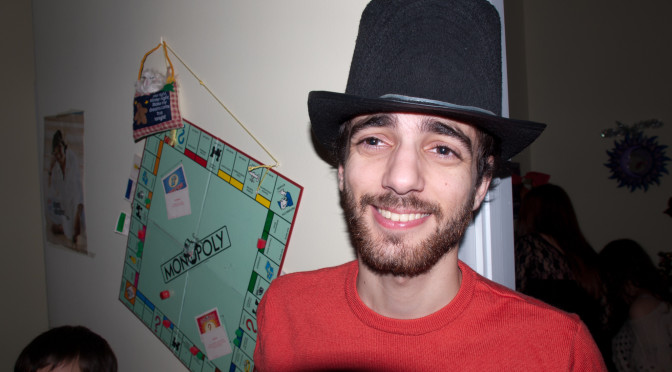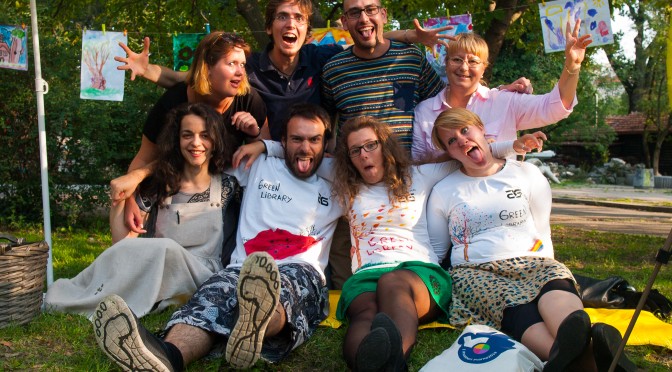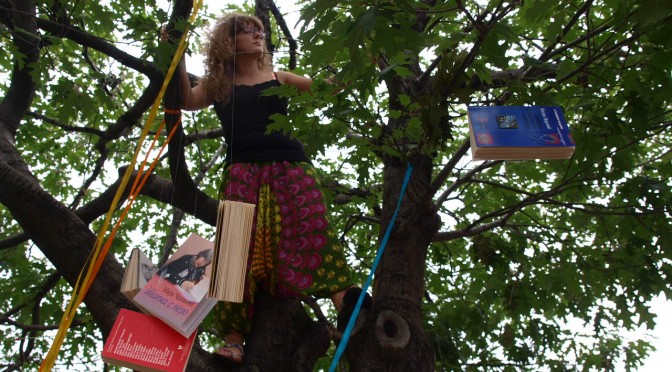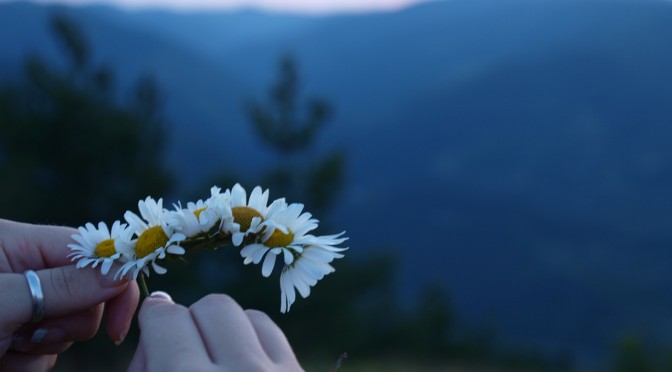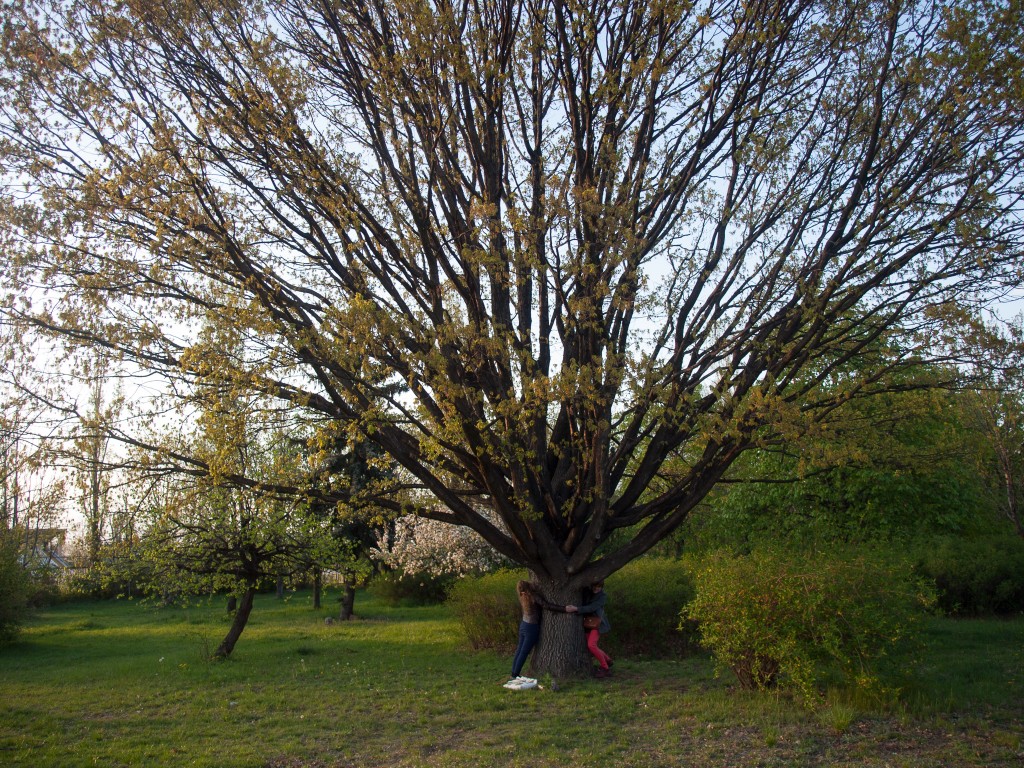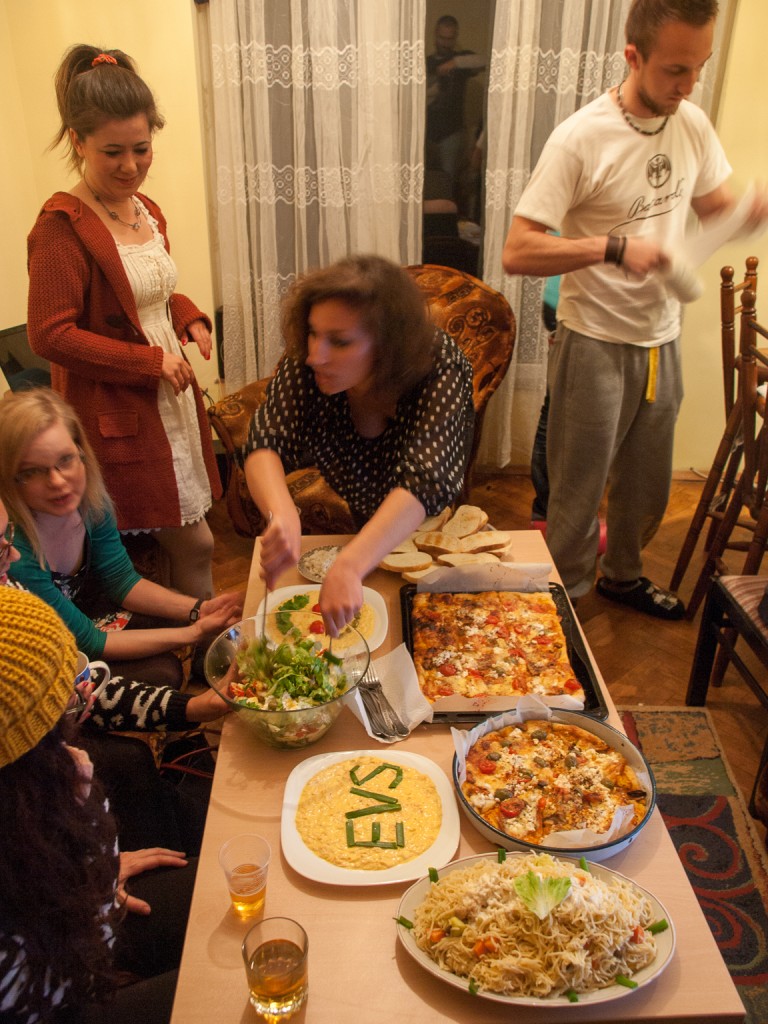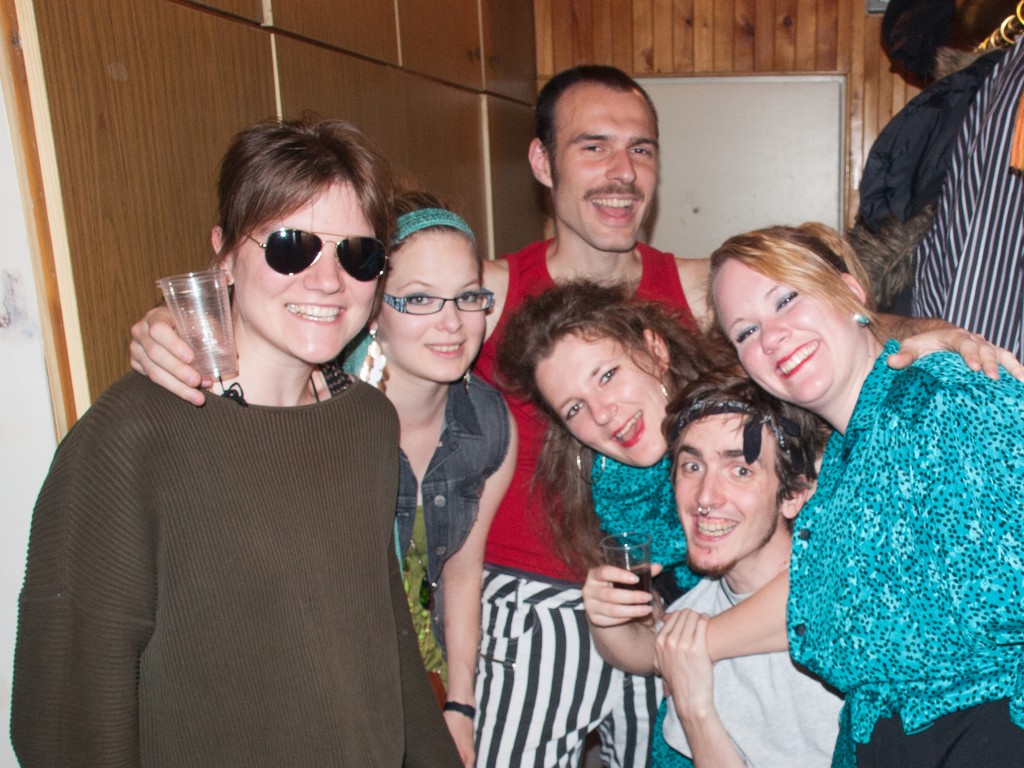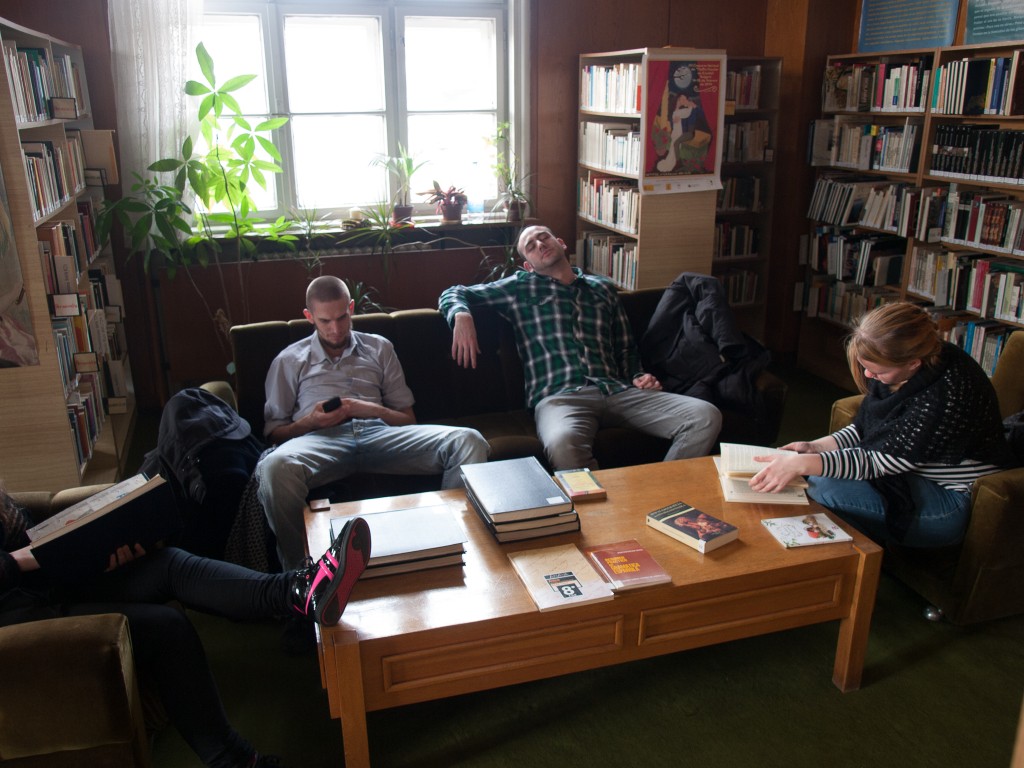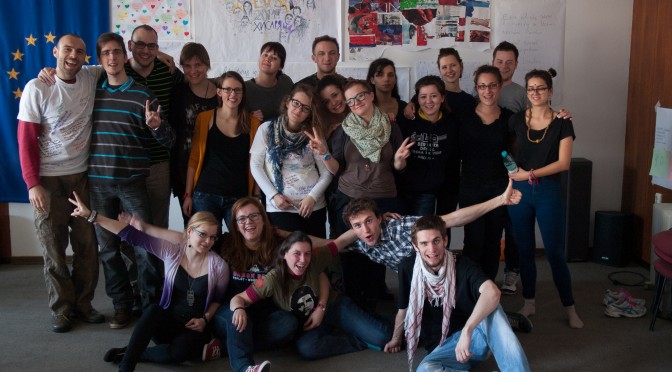Reblog from EVS in Sofia City Library.
Part of every EVSer’s life is the on-arrival training, a get-together with all the fresh volunteers in the country and a familiarisation with everything he or she needs to know about his or her voluntary service: the personal project, his or her rights and obligations (and those of all involved), how the health insurance works, etc etc. But it’s not just that; if it was, the on-arrival probably wouldn’t be etched on every volunteer’s mind as a definite highlight of the EVS project and some of the best days in his or her life in general.
 |
Some people thought we were actually trainers!
Who else was provided with t-shirts by their
awesome hosting organisation, eh? 🙂
Picture by Petar Markov. |
 |
Posing with the library shirts.
Picture by Petar Markov. |
Agne, the volunteer who was working in the library before us, had this to say about their on-arrival last year:
All EVS volunteers have to undergo training. On 19-24 July we had our ‘on-arrival’ at the Black Sea resort of Albena, organised by the Bulgarian national agency.There
have been nearly sixty trainees in total – EVS volunteers from projects all over Bulgaria – some of them ‘on-arrival’ like us, others ‘mid-term’.
Four trainers were giving us workshops, supported by several other people from the national agency.
The training, of course, is not just about partying. A typical day included a couple of three-hour sessions, separated by a two-hour lunch break – the latter typically spent at the beach.
I was not the only one thinking the sessions were fun but intense. We did: ice-breaking games in order to get to know each others, our projects & countries of origin; psychology workshops (personality types, negotiations, conflict management); classes about practicalities of
doing an EVS (volunteerism, AXA insurance); plus creative tasks such as designing posters, shooting short films & running for quests all over Albena. […] (full post here)
 |
Presenting Sofia City Library and our project to the group.
Picture by Petar Markov. |
 |
Everything’s better with posters and sketches!
Picture by Petar Markov. |
In our case, the place was Hisarya, (warning: musical link!), an old town well-known in Bulgaria for its hot springs. It took place from March 7th to March 13th, making it one of the longest trainings ever – lucky us! Our accommodation was Augusta Hotel, a renovated communist era hotel built close to one of those springs and using the water to fill its swimming pool, spas and saunas. Apart from the food, the experience of staying in that place was quite… interesting. Hotels always give me the impression that they exist sort of independently from the rest of civilisation, like places that belong nowhere specific. But that’s another topic entirely.

That’s us. Kuba and Ula from Poland; Anna from Austria; Florian from France; Anna, Christina and Dimitris (that’s me) from Greece; Bojan from Serbia; Miro from Slovakia; Veronika from Czech Republic; Corinne from the UK; Niina from Finland; Elena, Paula and Vicente from Spain; Rian from the Netherlands; Zanda from Latvia; Maria from Denmark; Gabriele and Rasa from Lithuania; Hilal from Turkey; Susanna from Armenia and our two trainers Nasko and Maya from Bulgaria! A truly multicultural, European group!
 |
| Our trainer Nasko and the EVS project cycle. |
 |
A session on intercultural communication, they said…
Picture by Petar Markov. |
Meanwhile, there were another 40 or so EVSers having their mid-term training in the hall next door. The “evening activities”, in which we could all mingle together after the tough sessions of the day, were pure pandaemonium. Let’s just say that by the end, our socialising limits had been tested.
 |
Shot from the Uglies Party the mid-terms
prepared for the on-arrivals.
Guess what the dress code was. |
|
|
 |
| All bowed to the superiority of the post-it game! |
I’d love to be able to convey at least part of what makes these kinds of things like youth exchanges, and in turn this training, so special, but I find it very difficult to do so: while I was thinking about writing this post, I realised that I have actually avoided writing about such experiences in the past. Being stuck together with complete strangers for a week and by the end feeling you’ve known them forever, doing things that an outsider would probably find silly or weird but you’re greatly enjoying, is not an easy feeling to explain. A friend of mine says its false intimacy. Maybe in the case of youth exchanges it mostly is: after the exchanges, I’m sad to say, it’s impossible to keep contact with everyone. Even the people with whom you thought you could be great friends, the people you would genuinely love to keep in touch with, are in time forgotten…
This training, however, was happily different in this respect. After the final day of the training, after all the parties were had, all the games were played, all the informal education was, erm, unleashed, all the projects were presented and all the friendships made, we all knew that we would see eachother soon, or at the very least had the possibility to do so; we were all volunteers in the same country, after all…
Indeed, on the weekend after the training, more than half of the group almost magically ended up in Sofia (most of them don’t live here) and what followed was a crazy couple of days. It was also Zanda’s birthday then and everyone was invited to the party. That night we hosted 5 people in our tiny little flat! But for every person that wasn’t in Sofia for these moments, a promise to visit had already been made. A promise we can’t wait to keep.
 |
We all had a secret mission assigned to us
by the trainers in the on-arrival, which we
had to work on throught our days in Hisarya
and presented to the group on the last day.
Zanda’s was to create a collage of everyone’s
national flags. After the training we took theposter
home and this is a picture of it with Florian
in our kitchen. Proof of the impact Hisarya
had on us and our relationships in Bulgaria… |
So what did we all take away with us from this experience? Personally, I had the chance to come closer to my own personal goals for the EVS as a whole, got many ideas for improving my own experience and work in the library and of course met great new people. I’d really like my friends and colleagues to include their own versions and impressions of the on-arrival, so the following space is for them.
(SPACE!)
 |
This one is the product of Corinne’s secret mission.
It, too, is hanging on our kitchen wall. |

